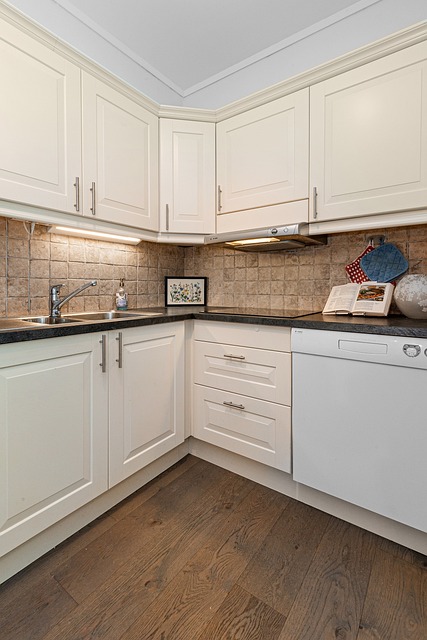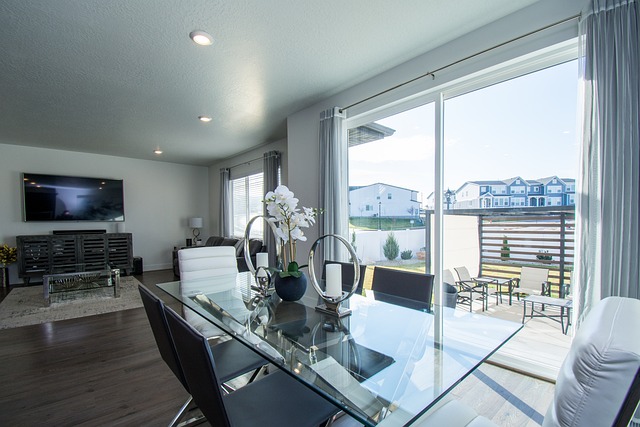“In the dynamic real estate market of 2022, understanding Executive Condo programs is key for both buyers and investors. This article delves into the intricacies of these exclusive offerings, providing an in-depth overview of eligibility criteria. From income requirements to location preferences, we explore who qualifies for these prestigious properties. Uncover the benefits that Executive Condos bring to the market, revolutionizing luxury living while offering substantial advantages to prospective residents.”
- Understanding Executive Condo Programs: An Overview
- Eligibility Criteria for 2022: A Deep Dive
- Who Qualifies: Exploring Key Factors
- Benefits and Impact on the Real Estate Market
Understanding Executive Condo Programs: An Overview

Executive Condo programs, introduced in 2022, are designed to offer a unique housing option for eligible buyers. These programs aim to make homeownership more accessible by providing incentives and support to those who meet specific criteria. In today’s competitive real estate market, these initiatives play a crucial role in helping prospective buyers take the leap into property ownership.
The 2022 Executive Condo guidelines typically focus on promoting affordable housing for middle-income earners. By defining clear eligibility requirements, such as income caps and down payment guidelines, these programs ensure that homeownership remains attainable for those who contribute significantly to the country’s workforce. Understanding these criteria is essential for anyone interested in navigating the executive condo market and securing their dream home.
Eligibility Criteria for 2022: A Deep Dive

In 2022, the eligibility criteria for Executive Condos remain tailored to support first-time homebuyers and those looking to upgrade their properties in Singapore. To qualify as an Executive Condo buyer, applicants must meet certain conditions set by the Housing & Development Board (HDB). One key requirement is that they must have a maximum annual income cap, which varies based on family size. For instance, a couple without children can earn up to $120,000 annually, while families with three or more members can afford a slightly higher income ceiling. Additionally, applicants are expected to have a minimum down payment of 20% for the property.
Beyond financial eligibility, buyers must also demonstrate citizenship or permanent residency status in Singapore and have no ownership of another HDB flat or private property. These stringent yet necessary criteria aim to ensure fair access to Executive Condos, catering to the needs of qualified buyers while maintaining a balanced housing market.
Who Qualifies: Exploring Key Factors

In the competitive world of executive condos in 2022, understanding eligibility criteria is paramount for aspiring buyers. The qualifications can vary across different jurisdictions and developments, but several key factors often play a significant role in determining who can call an executive condo home. One of the primary considerations is income; applicants typically need to meet certain financial thresholds set by the developers or government bodies. This ensures that these premium properties remain accessible to high-earning individuals or families without compromising affordability for other potential buyers.
Other crucial factors include occupation and property ownership history. Some executive condo projects may prioritize professionals in specific sectors, like finance or technology, while others might offer incentives for first-time homebuyers or those looking to downsize. Additionally, the location of the condo complex and nearby amenities can influence eligibility, as developers often aim to attract buyers who value convenience and luxury living. Staying informed about these changing criteria is essential for anyone interested in securing an executive condo in 2022.
Benefits and Impact on the Real Estate Market

The introduction of Executive Condos in 2022 has brought significant changes and benefits to the real estate market, particularly for first-time homebuyers. This innovative concept allows individuals who meet specific income criteria to own a premium condominium unit at more affordable prices compared to traditional private condominiums. By doing so, it opens doors for aspiring homeowners to enter the property market and potentially climb the ladder of homeownership.
The impact is twofold: it provides an alternative housing option that caters to a diverse range of buyers while also stimulating the overall market. Lower-entry barriers encourage more people to invest in real estate, fostering competition and innovation among developers. This increased demand can lead to faster development cycles and a wider variety of design options, ultimately enriching the landscape of modern urban living.



